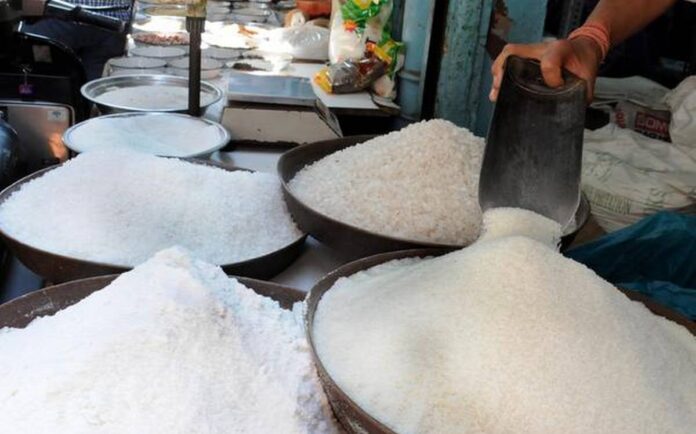The Federal Board of Revenue (FBR) informed a National Assembly panel on Tuesday that the International Monetary Fund (IMF) has approved exemptions on taxes and duties for sugar imports by the Trading Corporation of Pakistan (TCP).
According to a news report, FBR Member Dr Hamid Ateeq Sarwar explained that sugar imports normally attract 47.5% in taxes, including 20% customs duty, 18% General Sales Tax (GST), 3% value-added tax, and 6.5% income tax. Following IMF approval, state-owned sugar imports are now exempt from most of these levies, with only a 5% tax remaining.
The exemption applies exclusively to government imports and the private sector imports continue to face full taxation.
Dr. Sarwar added that Pakistan had not imported sugar since 2021, so these taxes had not been collected in practice. The government exported 750,000 metric tons of sugar and plans to import 250,000 metric tons, which officials describe as a cost-neutral measure.
He noted that lower-than-expected sucrose content in sugarcane—ranging between 6.5 and 8 percent instead of an estimated 10 percent—has contributed to tighter production levels.
Additional Secretary at the Ministry of Industries and Production, Asif Saeed Khan Lughmani, told the panel that the Federal Cabinet, based on recommendations from the Sugar Advisory Board (SAB), decided to export sugar. The SAB includes representatives from federal ministries, provincial cane commissioners, the FBR, the Pakistan Sugar Mills Association (PSMA), and sugarcane growers. The board relied on FBR’s Track and Trace System, which monitored production and release data from 79 of 81 sugar mills and accounted for a buffer stock of 540,000 metric tons—equivalent to one month’s domestic consumption—before approving exports.
Dr. Sarwar confirmed that mills are currently releasing 18,000 metric tons of sugar daily. While he expressed cautious optimism about production prospects, he said it is too early to provide a definitive forecast due to potential flood-related disruptions. Officials noted that domestic sugar prices have generally exceeded global rates in seven of the past ten years, but were lower than international prices between 2021 and 2023. The current landed price of imported sugar, including all taxes and freight costs, is Rs197 per kilogram, around 40 percent lower than domestic prices.
Panel members also discussed penalties imposed on sugar mills for cartelization and price manipulation. Officials confirmed that the Competition Commission of Pakistan (CCP) has levied fines totaling Rs44 billion following investigations covering 2009 and 2019–2021. The case was referred back to the CCP by the Appellate Tribunal after a split decision.
The Securities and Exchange Commission of Pakistan (SECP) shared updated director lists of 191 sugar-related companies based on statutory filings. The panel, chaired by Dr. Mirza Ikhtiar Baig, also requested minutes from a committee led by Power Minister Sardar Awais Leghari on sugar sector deregulation for review in upcoming policy recommendations.




